
Plenary and Invited Speakers

Emanuele Di Lorenzo Georgia Institute of Technology, USA
Dr. Emanuele Di Lorenzo is Professor and Director of the Program in Ocean
Science and Engineering
(http://www.ocean.gatech.edu) at the Georgia Institute of
Technology in Atlanta, USA. His research interests are in the field of
multi-scale climate and ocean dynamics (large-scale, regional and coastal),
climate impacts on marine ecosystems and social-ecological systems.
In his research, Dr. Di Lorenzo attempts to explain the dominant (e.g. low order)
dynamics of the ocean and marine ecosystem variability and change by combining
available observations with a hierarchy of numerical models
(e.g. dynamical and statistical) of ranging complexity. Using this approach,
Dr. Di Lorenzo has contributed several theoretical frameworks for explaining
the basin- and regional-scale climate and ecosystem variability of the Pacific
Ocean, including the dynamical relationships between the dominant climate modes
such as the Pacific Decadal Oscillation (PDO), North Pacific Gyre Oscillation
(NPGO), El Niño Southern Oscillation (ENSO), South Pacific Decadal Oscillation
(SPDO) and the Inter-decadal Pacific Oscillation (IPO).
In PICES he is a Vice-Chair of Science Board
and a Chair of the Physical Oceanography and Climate Committee (POC).
He is also co-chair of the US CLIVAR Phenomena, Observations, and Synthesis Panel and a member of Future Earth Ocean Knowledge Network.
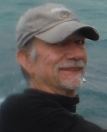
Jeffrey Polovina Pacific Islands Fisheries Science Center, NOAA-Fisheries, USA
Dr. Jeffrey Polovina is quantitative marine ecologist who has worked for the past 38 years at NOAA Fisheries directing and conducting ecosystem research and eventually serving as a senior scientist and the Chief of the Ecosystem and Oceanography Division (EOD) at the Pacific Island Fisheries Science Center, NOAA in Honolulu, HI, USA. His research focuses on understanding the spatial and temporal dynamics of marine ecosystems, with an emphasis on high tropic levels. Jeff began his career studying the Hawaiian Islands coral reef ecosystem trophic web where he developed the ecosystem model approach ECOPATH. Over the past several decades, he and colleagues have focused on physical-biological linkages in marine ecosystems, especially regime shifts and climate impacts. A related area of interest is to use electronic tags and remotely-sensed oceanographic data to understand how large pelagic animals use oceanic habitats. This work led to identifying the trans-Pacific Transition Zone Chlorophyll Front (TZCF) as important mid-latitude forage and migration habitat. His current research uses climate and ecosystem models and data to identify potential fishing and climate impacts on marine ecosystems. Recently he led the Science Center’s development of the Pacific Islands Climate Science Research Plan. While most of his work focuses on the central North Pacific and the Pacific Islands, Dr. Polovina has had two Fulbright Senior Research awards for work in Kenya and the Galapagos. He has also adjunct faculty appointments in the Oceanography and Marine Biology Departments at the University of Hawaii and serves as a Senior Fellow at the Joint Institute of Marine and Atmospheric Research (JIMAR) in Hawaii. In 2010, Jeff received the Wooster Award from the North Pacific Marine Sciences Organization (PICES). He has a B.S. in Mathematics from Carnegie-Mellon University and a Ph.D. in Mathematical Statistics from University California Berkeley.
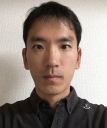
Satoshi Osafune JAMSTEC, Japan
Dr. Satoshi Osafune is a research scientist working at the Research and Development Center for Global Change at the Japan Agency for Marine-Earth Science and Technology (JAMSTEC). His main research interest is decadal to multi-decadal variability of ocean and climate in the North Pacific. Satoshi received his PhD in Earth and Planetary Science from the University of Tokyo in 2009, and was a post-doctoral researcher at the Atmosphere and Ocean Research Institute (AORI), the University of Tokyo until 2012. At AORI, he mainly investigated bi-decadal variations in water-mass properties in the subarctic region and their relation to the 18.6-year period modulation of tide-induced vertical mixing, based on the historical observations. After moving to JAMSTEC in 2012, Satoshi has been working on a long-term global ocean state estimation using a data assimilation method in order to investigate climate signals in the ocean, and their underlying mechanism.

Cisco Werner NOAA-Fisheries, USA
Dr. Cisco Werner is Director of Scientific Programs and Chief Science Advisor of U.S. NOAA’s National Marine Fisheries Service. Cisco’s research has focused on the oceanic environment through numerical models of ocean circulation and marine ecosystems in the Atlantic and Pacific Oceans. He has studied the effects of physical forcing on lower trophic levels and the subsequent effect on the structure, function and abundance of commercially and ecologically important species, and he has authored and co-authored over 100 papers in scientific journals and book chapters. Prior to taking his current position, he was the Director of NOAA Fisheries’ Southwest Fisheries Science Center (SWFSC; 2011-2017), when he also served as Head of NOAA Fisheries’ U.S. Science Delegation (HOD) in bilateral meetings with Mexico and Argentina, and as U.S./NOAA Fisheries’ HOD for the meetings of the International Scientific Committee for Tuna and Tuna-like Species in the North Pacific Ocean. He currently serves on the IMBER (Integrated Marine Biosphere Research) project’s Scientific Steering Committee, and is the US Government Delegate to PICES. From 2003-2007, Dr. Werner served as Chair of the Scientific Steering Committee of GLOBEC (the Global Ocean Ecosystem Dynamics Program), and Co-Chair of the PICES MODEL Task Team, 2001-2007, which focused on addressing the role of physical forcing, e.g., climate variability, in shaping our marine ecosystems. While in academia, Cisco was Director and Professor of Rutgers University’s Institute of Marine and Coastal Sciences (2008-2011) and Professor and Chairman of the University of North Carolina at Chapel Hill’s (UNC-CH; 1993-2008) Department of Marine Sciences. While at UNC-CH, he was the George and Alice Welsh Distinguished Professor from 2005-2008. From 2007-2017 he was co-Editor in Chief of the journal Progress in Oceanography. Cisco received his PhD in Oceanography in 1984, a MSc in Oceanography in 1981, and a BSc in Mathematics in 1978, all from the University of Washington.

Nicolás L. Gutiérrez Food and Agriculture Organization of the United Nations
Dr. Nicolás L. Gutiérrez is a Fishery Resources Officer in the Fisheries and Aquaculture Department of the Food and Agricultural Organization (FAO) based in Rome, Italy. In this role, he supports the design and implementation of programs of assistance to member countries in their tuna and tuna-like resource assessments, fisheries research and management activities, including implementation of the ecosystem approach to fisheries. Nicolás also provides advice and develop capacity building programs on fisheries assessment and management, particularly in data-limited situations and to developing world fisheries. Prior to taking up his post at FAO in 2015, he was the Head of Research at the London-based Marine Stewardship Council were he led the teams responsible for the policy development process, science communications and training, and research and credibility. Dr. Gutiérrez has focused his research on the interplay among ecological processes, fisheries management, and co-management governance and on the impacts of market-based approaches such as certification and eco-labelling in achieving sustainable fisheries. Nicolás holds a PhD in Fishery Sciences from the University of Washington and an MSc in biology from the University of Uruguay. He has worked in fisheries management at the national and international level for more than 15 years and has taught several courses on marine conservation and fisheries stock assessment. He has received the Fulbright Scholarship, the Organization of American States’ Initiative in Ecology Award, and a National Science Foundation fellowship (USA).

Jack Barth Oregon State University
Dr. Jack Barth is the Executive Director of Oregon State University’s Marine Studies Initiative, a new program to unite marine-related research, teaching, and outreach and engagement across OSU and the state of Oregon. The mission of the Marine Studies Initiative is to create a healthy future for our ocean and the planet through transdisciplinary research and teaching that emphasizes collaboration, experiential learning, engagement with society and problem solving. Jack is also a Professor of Oceanography in OSU’s College of Earth, Ocean, and Atmospheric Sciences (CEOAS). His research seeks to understand the complex spatial structure and time variation of coastal ocean circulation and water properties, and how these influence coastal marine ecosystems. He has led a number of research, technology development and ocean observing system projects off Oregon and around the world. Jack’s present research includes a focus on the characteristics and formation of low-oxygen zones off Oregon. His research team uses autonomous underwater gliders, robots beneath the sea surface, logging over 100,000 km of measurements over the last ten years. From 2004 to 2007, he was a member of the National Science Foundation’s Observatory Steering Committee that launched the Ocean Observatories Initiative (OOI). As Project Scientist for the OOI, he is responsible for facilitating the scientific use of the OOI Endurance Array installed off Oregon and Washington. From 2013-2016, Jack served on the U.S. West Coast Ocean Acidification and Hypoxia Science Panel and is a member of the Glider Task Team for the U.S. Interagency Ocean Observation Committee that coordinates ocean research and monitoring among 12 federal agencies. He is a member of the North Pacific Marine Science Organization (PICES) MONITOR Committee, responsible for coordinating ocean observations across the six PICES member nations. Jack is a Fellow of The Oceanography Society and the American Meteorological Society. He received a PhD in Oceanography in 1987 from the Massachusetts Institute of Technology and Woods Hole Oceanographic Institution Joint Program in Oceanography.

Kenneth Johnson Monterey Bay Aquarium Research Institute, USA
Dr. Kenneth Johnson is a Senior Scientist at the Monterey Bay Aquarium Research Institute (MBARI, USA). He received his B.S. in Chemistry and Oceanography from the University of Washington and his Ph.D. in Oceanography from Oregon State University. Prior to joining MBARI, he was Professor of Oceanography at Moss Landing Marine Laboratories. His research interests are focused on the development of chemical sensors that can be deployed in large-scale networks and the application of these tools to studies of chemical cycling and ecosystem health throughout the ocean. His major effort today is building a network of 200 robotic platforms and sensors in the Southern Ocean through the SOCCOM project (Southern Ocean Carbon and Climate Observations and Modeling). These systems observe ocean carbon uptake year around in a region that is seldom visited by scientists. A long-term goal is the development of a global scale observing system that can directly monitor the impacts of climate change on the ocean carbon cycle and ocean health. Ken serves as Co-Chair of the Biogeochemical-Argo program, a consortium of 15 nations that are working to achieve this goal.
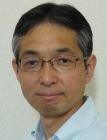
Toshio Suga Tohoku University/JAMSTEC, Japan
Dr. Toshio Suga is a Professor of Physical Oceanography at Tohoku University, Japan and a Visiting Principal Scientist at the Japan Agency for Marine-Earth Science and Technology (JAMSTEC). His research interests are focused on ventilation of the upper ocean and its role in climate variability and change, and associated physical/biogeochemical processes, including water mass formation/modification, large scale ocean circulation, mesoscale/sub-mesosclae variability and biological productivity. His early studies were based mainly on analysis of large volume of hydrographic data, which has led to, for example, finding a new mode water, the North Pacific Central Mode Water, and producing an isopycnally averaged climatology, the North Pacific Hydrobase. Toshio has been involved in the Argo Program since its beginning in 2000 as a visiting scientist at JAMSTEC, serving as a Group/Team Leader of the JAMSTEC Argo program from 2006 to 2014 and as an executive member of International Argo Steering Team (AST) since 2009. His efforts include utilizing temporally and spatially homogeneous sampling of the ocean by Argo to understand not only formation, subduction and modification of water masses in an eddying ocean but also associated physical-biogeochemical-biological processes. Toshio also served on the CLIVAR Pacific Panel from 2005 to 2011 and the GCOS-GOOS-WCRP Ocean Observations Panel for Climate (OOPC) from 2007 to 2015, co-chairing OOPC from 2013–2015. He has been a member of the Global Ocean Observing System (GOOS) Steering Committee since 2016. He received a B.S. (1985), a M.S. (1987) and a Doctor of Science degree (1991) from Tohoku University.

Dimitri Gutierrez IMARPE, Peru
Dr. Dimitri Gutiérrez is the Director of Research in Oceanography and Climate Change of the Peruvian Marine Research Institute (IMARPE). He received his PhD in Oceanography from the University of Concepción, Chile, in 2000. Dimitri is member of the El Niño Study National Commission of Peru (ENFEN), and was the ENFEEN technical coordinator in 2016 – 2017. His research has been focused on responses of benthic organisms to natural and human-induced hypoxia, effects of climate variability on the marine productivity and subsurface oxygenation in the coastal South Eastern Pacific involving paleoproxies and in situ data analyses and, recently, on spatial and temporal changes of the Peruvian upwelling as related to global trends. Currently, Dr. Gutierrez is also involved in developing adaptation projects for the impact of climate change on Peruvian fisheries and marine coastal ecosystems and participates in the IOC-UNESCO Global Ocean Oxygen Network (GO2NE).
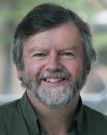
Paul Snelgrove Memorial University of Newfoundland, Canada
Dr. Paul Snelgrove is a Professor of Ocean Sciences and Biology at Memorial University of Newfoundland in Canada. He received a BSc. Hons degree in Biology at Memorial University, a Master's degree in Oceanography from McGill University, and a PhD from the Massachusetts Institute of Technology and Biology Department at Woods Hole Oceanographic Institution. Since 2008 Paul has been Director of the NSERC Canadian Healthy Oceans Network, a national research network in Canada that has already trained some 100 students working on all 3 of Canada’s oceans to develop new tools and approaches to support sustainable oceans. He also currently plays the role of Associate Director of The Ocean Frontier Institute. From 2003–2013, Dr. Snelgrove held a Canada Research Chair in Boreal and Cold Ocean Systems, and prior to that an NSERC Industrial Chair in Fisheries Conservation. He led the synthesis of the International Census of Marine Life research program, where he was a member of the program’s Scientific Steering Committee. Dr. Snelgrove published the book “Discoveries of the Census of Marine Life: Making Ocean Life Count” with Cambridge University Press in 2010 and was a TED (Technology, Entertainment and Design) Global speaker in 2011. He has published over 100 papers and book chapters on marine biodiversity in the deep sea and coastal ocean.
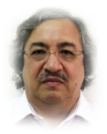
Francisco Arreguín-Sánchez CICIMAR-IPN, Mexico
Dr. Francisco Arreguín-Sánchez is a Professor at the Interdisciplinary Center for Marine Sciences of the National Polytechnic Institute (CICIMAR-IPN) in Mexico, and was Director of CICIMAR-IPN in 2001–2004. He is a member of the Mexican Academy of Sciences and has been a counselor and a member of various committees of Mexican Research Institutions. He served as a member of the Consultative Council of the National Fishing Institute from 2003–2007, and as a jury member of the National Science and Arts Awards in 2009 and 2015 and of the National Award for Ecological Merit in 2016 and 2017. Dr. Arreguín-Sánchez has also worked as FAO Consultant on fisheries research policy, fisheries management, fishing impacts, and training human resources in Argentina, Peru and Mexico.
His research focuses on fisheries management and the responses of exploited ecosystems to disturbances such as fishing and climate change. Dr. Arreguín-Sánchez published more than 300 scientific papers and is among the 200 most cited Mexican scientists, and the fourth most cited at the National Polytechnic Institute. He has been responsible for more than 45 national and international research projects, and has taught more than 120 courses at postgraduate level, directing 23 PhD, 32 MSc and 15 BSc theses. In 2010, Dr. Arreguín-Sánchez received the Lázaro Cárdenas Award, the highest award for scientific research granted by the National Polytechnic Institute and delivered by the President of Mexico. He is also a recipient of the State Prize of Science and Technology and the Medal of Scientific and Technological Merit, delivered by the State Congress of Baja California Sur.
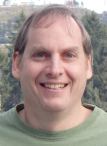
Thomas Therriault Department of Fisheries and Oceans, Canada
Dr. Thomas (Tom) Therriault is a Research Scientist with Fisheries and Oceans Canada (DFO) at the Pacific Biological Station in Nanaimo, British Columbia. He has broad interests related to conservation and ecosystem stressors, especially aquatic invasive species. His diverse program includes research on the impacts and potential mitigation measures for high risk species like tunicates and European green crab, monitoring and early detection (including molecular methods), and risk assessments for both species and vectors (including tool development). Ultimately, most projects are intended to provide science advice to inform management and policy decisions. Dr. Therriault was the west coast node lead for both Canadian Aquatic Invasive Species Networks (CAISN I and II) and is now a theme leader for the Second Canadian Healthy Oceans Network (CHONe2). These large networks represent significant collaborations between academia, government, and industry/stakeholders, while providing training to graduate students and postdoctoral fellows. Within PICES, Dr. Therriault has held many roles, including Science Board Chairman, Co-Chairman of the PICES project on Assessing the Debris-Related Impacts From Tsunami (ADRIFT), member of PICES WG-21 on Non-indigenous Species, Chairman of Advisory Panel on Anthropogenic Impacts in Coastal Ecosystems, and is currently the Vice-Chairman of the Marine Environmental Quality Committee. Tom has a BSc from Wilfrid Laurier University, a MSc from Memorial University of Newfoundland, and a PhD from McMaster University. He was a postdoctoral fellow at the Great Lakes Center for Environmental Research, University of Windsor prior to joining DFO.
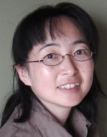
Sayaka Yasunaka JAMSTEC, Japan
Dr. Sayaka Yasunaka is a scientist working at the Research and Development Center for Global Change at the Japan Agency for Marine-Earth Science and Technology (JAMSTEC). Her main scientific interest is on biogeochemical cycles and carbon circulation in the North Pacific and the Arctic. Sayaka’s most recent research focused on studying basin-scale seasonal to inter-annual variability of sea surface nutrients in the North Pacific, estimating carbon export in the surface waters of the western North Pacific, and mapping of the air-sea CO2 flux in the Arctic Ocean. She holds a PhD in Earth and Planetary Science from Tohoku University.

Simon Bush Wageningen University, Netherlands
Dr. Simon Bush is Professor and Chair of Environmental Policy at Wageningen University, Netherlands. His research focuses on public and private environmental governance arrangements for fisheries and aquaculture. Simon’s recent publications investigate the role of market-based sustainability arrangements such as certification, fishery improvement projects, fishery credit systems and traceability with a focus on Pacific tuna fisheries. He is the principle investigator for two projects researching the role of the private sector in the sustainable management of tuna fisheries under the BESTTuna program (https://www.wur.nl/en/show/project-besttuna.htm). Simon is also Associate Editor of Maritime Studies and serves on the technical advisory board of Monterrey Bay Aquarium's Seafood Watch program, the Good Fish Foundation and the aquaculture program of the Sustainable Trade Initiative (IDH).
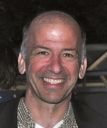
James Ianelli South Pacific Fisheries Regional Management Organization/Alaska Fisheries Science center, NOAA-Fisheries, USA
Dr. Jim Ianelli has worked in fisheries research since the late 1970s beginning as a field biologist studying tuna biology and fisheries. He served as a research scientist with the South Pacific Commission located in New Caledonia, and later directed the construction of marine lab for the Inter-American Tropical Tuna Commission’s (IATTC) in Panama. He conducted independent tuna tagging experiments on juvenile bluefin tuna based in small fishing communities in Japan. In between these research activities he earned a BS from Humboldt State University and a PhD from the University of Washington in 1993. For the last 25 years, he has worked for the Alaska Fisheries Science Center’s stock assessment team responsible for producing analyses used for the management of important groundfish and crab species in the North Pacific. His research interests include developing statistical approaches for ecosystem/fisheries conservation management. He is an affiliate professor at the University of Washington. He chairs the North Pacific Fishery Management Council’s groundfish Plan Team and serves on the Advisory Panel for the Commission for the Conservation of Southern Bluefin Tuna. Since 2013 he has served as Chair of the Scientific Committee for the South Pacific Regional Fisheries Management Organization.
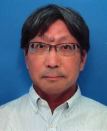
Toshihide Iwasaki North Pacific Fisheries Commission
Dr. Toshihide Iwasaki has been the Director of the Fisheries Management Department at the Tohoku National Fisheries Research Institute, Japan Fisheries Research and Education Agency since 2014. After graduating from PhD course in veterinary medicine, he had been studying population biology of small cetaceans (dolphins and porpoises) during 1991-2012. Dr. Iwasaki has been a Chair for the Small Scientific Committee on Pacific Saury (SSC PS) of the North Pacific Fisheries Commission (NPFC) since 2015 and is currently leading the activities of SSC PS on stock assessment of Pacific saury. Provisional attempt was successfully completed in 2017, and the next challenge for SSC PS will be to construct specific stock assessment models for Pacific saury.
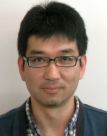
Hidetada Kiyofuji International Scientific Committee for Tuna and Tuna-like Species in the North Pacific Ocean/National Research Institute of Far Seas Fisheries, FRA, Japan
Dr. Hidetada Kiyofuji is a fishery scientist leading the Skipjack and Albacore Group at the National Research Institute of Far Seas Fisheries, Japan Fisheries Research and Education Agency. His main research interests include fisheries oceanography and ecosystem dynamics, and stock assessment and management of highly migratory species. Hidetada has worked in fisheries management at the national and international level for more than 10 years, and his current focus is on skipjack stock assessment in the WCPFC (Western and Central Pacific Fisheries Commission) convention area and North Pacific albacore stock assessment through ISC (International Scientific Committee for Tuna and Tuna-like Species in the North Pacific Ocean), where he chairs the Albacore Working Group. Hidetada holds a Ph.D. in fisheries sciences from Hokkaido University, and was a Post-Doctoral Research Fellow at the NOAA/University of Hawai’i Joint Institute for Marine and Atmospheric Research (JIMAR) before accepting a research scientist position at the National Research Institute of Far Seas Fisheries.

Jenny Sun National Taiwan Ocean University, Chinese-Taipei
Dr. Jenny Sun is a Professor of the Institute of Applied Economics (IAE) at the National Taiwan Ocean University (NTOU) and was Director of IAE in 2003–2006. She was also on the Executive Committee of the International Institute of Fisheries Economics and Trade (2000–2004), and served as a Research Scholar at the Inter-American Tropical Tuna Commission (IATTC; 2009–2010) and as a Senior Marine Resource Economist at the Gulf of Maine Research Institute, USA (2011–2017). Jenny received her Ph.D. in Applied Economics from Cornell University in 1994 and has over two decades of teaching and research experience in marine resource economics with multidisciplinary approach, as well as experience in fisheries management and the ability to bridge knowledge gaps between changing ocean ecosystems and the socioeconomic realities of communities. Her research focuses on the sustainability of the fisheries and marine resources through the development of well-managed policy that considers the creation of the right economic incentives to guarantee a sustainable future for the benefit and health of the marine ecosystem. Dr. Sun was one of the co-principal investigators for the U.S. National Science Foundation (NSF) Dynamics of Coupled Natural and Human Systems project to empirically model how social and environmental meta-scenarios impact the spatiotemporal decision process of tuna purse-seine fishing effort in the eastern Pacific Ocean (2011–2016), with results published in PLOS ONE (2016). She also served as a co-PI for NSF Coastal Science, Engineering and Education for Sustainability (2013–2017) and is currently a co-PI for evaluating social-ecological vulnerability and climate adaptation strategies for Northeast U.S. Fishing Communities (2015–2018), funded by NOAA’s Coastal and Ocean Climate Applications. Dr. Sun is a co-author of an FAO Fisheries and Aquaculture Technical Report in 2010 to address developments in the tuna industry: stocks, fisheries, management, and markets, and her recent findings in global tuna demand were published in Reviews in Fish Biology and Fisheries (2016), Environmental and Resource Economics (2017), and Marine Policy (2017).
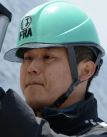
Daisuke Hasegawa Tohoku National Fisheries Research Institute, FRA, Japan
Dr. Daisuke Hasegawa is a Senior Researcher at the Tohoku National Fisheries Research Institute, Japan Fisheries Research and Education Agency. He received his Bachelor’s degree (1999), Master’s degree (2002) and Doctorate degree (2005) in Ocean Science from the Tokyo University of Fisheries. During his postgraduate study, Daisuke spent some time as a visiting student at the School of Earth and Ocean Sciences, University of Victoria, Canada. He was a Postdoctoral Research Fellow at the Tokyo University of Marine Science and Technology (2005–2006) and then a Postdoctoral Fellow and a Research Associate at the Department of Oceanography, Dalhousie University, Canada (2006-2011) before accepting a research scientist position at the Okinawa Institute of Science and Technology. Dr. Hasegawa moved to the Tohoku National Fisheries Research Institute in 2014. His current research focus is on micro-scale observations of biogeochemical properties under OMIX (Ocean Mixing Processes: Impacts on Biogeochemistry, Climate and Ecosystem) project (http://omix.aori.u-tokyo.ac.jp/en/overview/ This project will develop efficient observing system of ocean diapycnal mixing and next-generation numerical models to quantify the maintenance mechanism of deep and bio-geochemical circulations and to reproduce observed bi-decadal ocean and climate variability. Daisuke has also developed a bio-sensor for ship-underway operation (underway bio-uctd).

Masao Kurogi JAMSTEC, Japan
Dr. Masao Kurogi is a scientist working as a member of the Project Team for HPC (High Performance Computing) Advanced Predictions utilizing Big Data at the Japan Agency for Marine-Earth Science and Technology (JAMSTEC). He developed a two-way nested-grid Ocean General Circulation Model (OGCM) and investigated the mechanism the Kuroshio paths and Kuroshio Extension at the Center for Climate System Research, the University of Tokyo as a postdoctoral researcher (2007) and at JAMSTEC (2008-present). Currently, he is developing a high-resolution OGCM covering the entire Japanese coastal system with horizontal mesh of about 500 m under the project of Post-K Priority Issue 4 (Advancement of meteorological and global environmental predictions utilizing observational Big Data) and focusing on the physical processes in the coastal region, including circulation, tidal flow, and small-scale eddies and disturbances. He holds a PhD in Earth and Planetary Sciences and BSc from Kyoto University.

Charles Stock Geophysical Fluid Dynamics Laboratory, NOAA, USA
Dr. Charles Stock is a Research Oceanographer at NOAA’s Geophysical Fluid Dynamics Laboratory (GFDL). He received his Ph.D. from the Woods Hole Oceanographic Institution/Massachusetts Institute of Technology Joint Program in 2005, where he studied the dynamics of harmful algal blooms. Since joining GFDL’s Biogeochemistry, Ecosystems and Climate Group in 2007, Dr. Stock has worked to develop comprehensive and mechanistic marine ecosystem models for global Earth System simulations. He has also applied IPCC-class climate and earth system models to assess the impact of climate on living marine resources across time and space scales: from seasons to centuries, and from ocean basins to estuaries. In 2009, Dr. Stock received the Presidential Early Career Award for Scientist and Engineers for his efforts to enhance understanding of climate-ecosystem interactions.
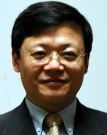
Xinyu Guo Ehime University, Japan
Dr. Xinyu Guo is a Professor of Physical Oceanography at Ehime University in Japan. He received his Bachelor’s degree in Engineering from Tianjin University in 1988, Master’s degree in Marine Hydrodynamics from Harbin Engineering University in 1991, and Doctorate degree on Coastal Oceanography from Ehime University in 1997. After a brief stay at the Ocean Research Institute, the University of Tokyo, he joined the Institute for Global Change Research, Japan Agency of Marine-Earth Science and Technology (JAMSTEC) in October 1997 and worked on numerical modelling of the Kuroshio as a member of the Japan Coastal Ocean Predictability Experiment (JCOPE) group. Dr. Guo moved to Ehime University as an Associate Professor in November 1999 and currently is working on numerical modeling of tidal and sub-tidal currents in semi-enclosed bays, oceanic nutrient transport and low-trophic ecosystems in the East China Sea and the Kuroshio region, and modeling of long-term transport of pollution material in the coastal ocean.

Michael Jacox Southwest Fisheries Science Center, NOAA-Fisheries, USA
Dr. Michael Jacox is a physical oceanographer working at the NOAA Southwest Fisheries Science Center laboratory in Monterey, CA, USA. His primary research focus is on physical-biological interactions in the ocean and their connections to climate, particularly in the northeast Pacific. Recently, he has focused on interannual to decadal scale variability in the physical ocean environment off the US West Coast, its relationship to known modes of climate variability and long-term climate change, and the potential impacts of this variability on phytoplankton and higher trophic levels. Mike is currently leading new efforts to develop end-to-end assessments of climate impacts on US west coast fisheries, including seasonal forecasts and centennial-scale projections of ocean conditions, distributions of targeted and bycatch species of interest to US fisheries, socio-economic impacts of changing living marine resources, and evaluations of fisheries management strategies in a changing climate. He holds a Ph.D. in Ocean Sciences from the University of California, Santa Cruz, and a B.S. in Aerospace Engineering from the University of Colorado.
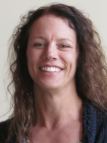
Sonia Batten Sonia Batten (SAHFOS, UK; soba@sahfos.ac.uk)
Dr. Sonia Batten is the Director of the North Pacific Continuous Plankton Recorder Survey, as the western outpost of the Sir Alister Hardy Foundation for Ocean Science (SAHFOS) in British Columbia, Canada. Sonia completed her BSc. and PhD. at Southampton University, UK, before joining SAHFOS. Sonia’s research interests focus on the interactions between large scale ocean climate variability and the plankton so that biological oceanography forms the basis of most of her publications. She is the current Chair of the Global Alliance of CPR Surveys (GACS), member of the PICES MONITOR Technical Committee and a member of the Global Ocean Observing System (GOOS) Biology and Ecosystems Panel.
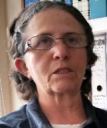
Bertha Lavaniegos CICESE, Mexico
Dr. Bertha Lavaniegos has been a research biologist at Centro de Investigación Científica y de Educación Superior de Ensenada (CICESE) for the last twenty years. She is dedicated to the study of zooplankton variability in relation to climate, and the relationship between planktivors and the higher trophic levels such as fishes, mammals, birds, and turtles. Bertha studies the biogeography of different zooplankton species, their utility as indicators of currents and water masses, and their resilience or vulnerability to environmental threats. Her initial research on the effects of El Niño on euphausiid populations has extended further to impact analysis of long-term changes in these crustaceans and other groups of planktonic invertebrates such as salps, hyperiid amphipods, copepods, and pelagic mollusks. This research has been done for the California Current System (CCS) in collaboration with U.S. and Canadian investigators. Bertha is currently working in the IMECOCAL (Investigaciones Mexicanas de la Corriente de California) program, which is the CALCOFI (California Cooperative Oceanic Fisheries Investigations) counterpart for the Baja California sector of the CCS. She holds a PhD in marine ecology from CICESE and a BSc in Biology from the National University of Mexico.

Xinzheng Li Institute of Oceanology, Chinese Academy of Sciences, China
Dr. Xinzheng Li has been a Research Professor at the Institute of Oceanology of the Chinese Academy of Sciences (IOCAS) since 1996. From 1996–2005, he chaired the Department of Systematics of Marine Biota and also served as a Head of the Marine Biological Museum of the Chinese Academy of Sciences. Xinzheng was a Visiting Scholar at the Smithsonian National Museum of Natural History (1997–1998) and at the Biodiversity Centre of the National University of Singapore (2005–2006). His main research interests include ecology of marine macrobenthos, taxonomy and systematics of marine invertebrates (mainly crustaceans) and marine biodiversity, and he has published 6 books and over 180 papers on these topics. Dr. Li is a long-time member of the Biodiversity Committee of the Chinese Academy of Sciences and was involved in the International Census of Marine Life research program, where he was a member of the Science Planning Committee. Hereceived his Bachelor’s degree (1985), Master’s degree (1988) and Doctorate degree (1991) in Invertebrate Zoology from Nankai University in Tianjin, China.
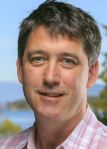
Jon Chamberlain Department of Fisheries and Oceans, Canada
Dr. Jon Chamberlain is the head of the Ocean Modelling and Predictions Section for DFO Pacific Region Science Branch. He has over two decades of research and management experience in near-shore ecosystem modelling with a particular focus on aquaculture-environment interactions. Jon is currently leading a program to develop high resolution coastal circulation models for the BC coast for application to a range of environmental management applications. He holds a Ph.D. in Modelling Aquaculture-Environment Interaction from Napier University, Edinburgh and a B.Sc. in Applied Marine Biology from Heriot-Watt University, Edinburgh.
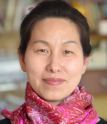
Jingmei Li Ocean University of China, China
Dr. Jingmei Li is a Professor of Economics, Ph. D. Adviser at Ocean University of China. She is the academic leader for regional economics of key disciplines in Shandong province, and is mainly engaged in marine resource economics and management. With the increasing development of the marine economy in China, as well as significant threats on marine ecosystem services, her focus is on the studies of marine ecological capital assessment, marine ecological damage assessment, marine resources assets and liabilities, marine resources environmental carrying capacity and industrial distribution. JIngmei’s present research interest is applying Contingent Valuation Method (CVM) and Habitat Equivalency Analysis (HEA) to assess the ecological damage caused by sea reclamation, green tides and other uses of the sea, and using propensity score matching (PSM) to analyze the effects of ecological compensation criteria. Dr. Li has taken charge of more than 20 projects, such as the national social science fund program, Ministry of Education Research of Social Sciences key projects, 908 national marine special subproject, and provincial, regional and international cooperation projects. She has also participated in a key national R&D Plan of the Ministry of Science and Technology and published more than 40 academic papers in core peer-reviewed journals. Dr. Li is a member of the Committee of Women Scientists of the Chinese Society for Oceanography, and serves as an expert in the social science planning project of the Ministry of Education. She was also an economic consultant in the investment component for the Yellow Sea Large Marine Ecosystem (YSLME) of UNDP/GEF (2005-2010), and a national environmental economic advisor for UNDP/GEFF/SOA Project on Biodiversity Management in Coastal Areas of China’s South Sea (SCCBD) (2008-2012).
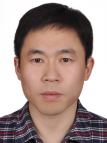
Zengjie Jiang Yellow Sea Fisheries Research Institute, Chinese Academy of Fishery Sciences, China
Dr. Zengjie Jiang is a Professor at the Yellow Sea Fisheries Research Institute, Chinese Academy of Fishery Sciences. He received his PhD in Marine Biology from Institute of Oceanology, Chinese Academy of Sciences in 2008. His main research interest is in the development of sustainable marine food production systems that are integrated with the coastal and marine environment. He has developed pilot-scale, integrated, marine aquaculture systems in collaboration with the aquaculture industries. Dr. Jiang is in charge of more than 10 national and international projects, including the branch task of the Modern Agro-industry Technology Research System, the scientific and technological cooperation project between the National Science and Technology Foundation (Fundação para a Ciência e a Tecnologia) of Portugal and National Natural Science Foundation of China, the international science and technology cooperation program of China, etc. He has published more than 60 peer-review academic papers. Dr. Jiang is a member of the Marine Ecology Committee and the Ecology Society of China and the Master’s Degree Advisor at the Shanghai Ocean University and Qingdao Agricultural University of China. Beside his academic and research activities, Dr. Jiang has served as reviewer of international journals such as “Aquaculture”, “PeerJ”, “Aquaculture Environment Interactions”, etc.
- Early registration
- Abstract submission
- Financial support application
- Early registration
- Abstract submission
- Financial support application
- Abstract acceptance notification
- Financial support grant notification
- Confirm your presentations and attendance
- Confirm your financial support acceptance


